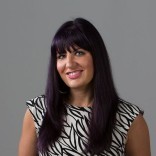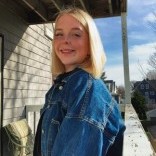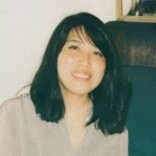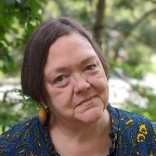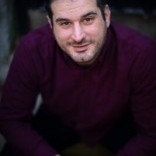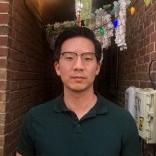Madonna and Child
M. Cynthia Cheung
after the portrait of Catherine of Aragon by Michael Sittow
I’ll say it again:
I went to both marriages a virgin.
See my white cap, its pleats
lapping my face. My loosened hair.
The painter asks me to imagine looking
at something cradled in my palms
so he can correctly mix the shadow
of sockets and downcast lids.
No other way, he says,
because when the story begins
Mary has no idea how it ends.
My straight gaze would betray it all.
He gives me a live infant.
It’s a change to be sure.
A fat-limbed, old-faced male child
brushed into my not-dead arms.
A silent goldfinch in his small fist, the other
reaching for my mouth.
If I were that bird,
my child would be a bird.
And under the snow-laden branches
we would roost in our dark feathered
lives, content to watch our pain
pass far beneath us.

